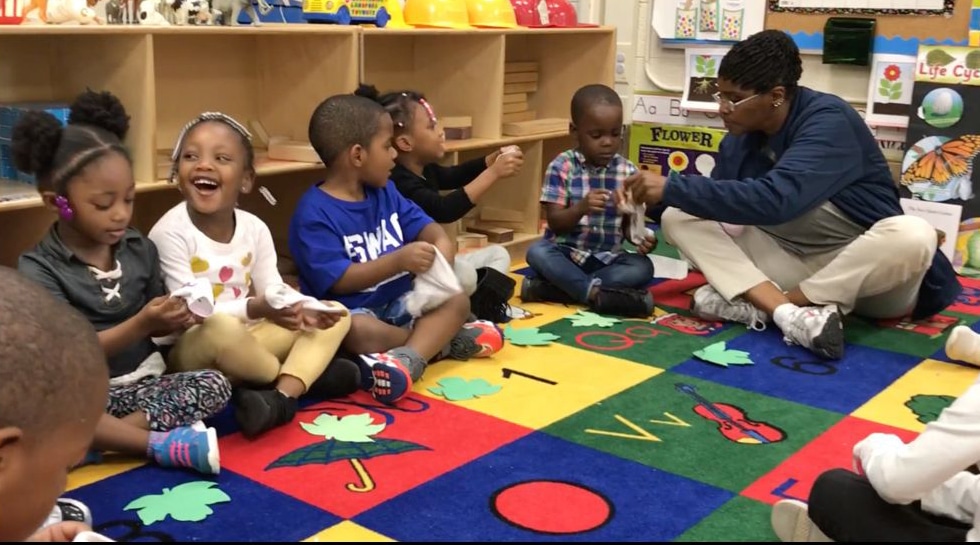Responding to the Signals Kids are Sending in State and Local Systems

By Sarah Torian and Arianne Weldon
“Everything manifests in children’s behavior,” said Garry McGiboney, Georgia Department of Education (GaDOE) Office of School Safety deputy superintendent. “If children are doing well in school and life, how do we know? It’s manifest in their behavior. If they’re depressed or scared, how do we know? It’s manifest in their behavior.”
A long-time advocate for positive learning climates in Georgia’s public schools, McGiboney helped develop a five-part “Signals: Social-Emotional and Mental Health Development for Children and Teens” webinar series designed to help educators, caregivers, family members, and medical providers recognize the signals of social-emotional and mental health development of children.
Georgia Learns, a professional development arm of GaDOE, is developing online learning modules to complement the Signals webinar series, which will roll out in the coming year. The modules will:
- help educators understand and respond to the behavioral cues children are sending,
- promote positive and engaging learning climates,
- break down barriers that might prevent children from accessing appropriate social-emotional and behavioral support, and
- build strong relationships with children’s families.
“These training materials are part of a larger effort to encourage all who work with children to take a second, third, or even fourth look and not be so quick to categorize a child’s behavior without thinking about what might be underlying it,” said McGiboney.
Recognizing the importance of promoting early language development, Georgia is in the process of developing a Quality Rated Language and Literacy Endorsement to recognize child care programs that create language-rich environments.
This increased recognition of the impact of language development on children’s behavior is already having an effect on school systems in Georgia, including Cobb County, where school psychologists have adopted a new practice to help avoid attribution error. When a child is referred to a school psychologist for inappropriate behavior, the psychologist must produce at least three explanations for the behavior before identifying a response. In the coming year, Cobb County leaders also plan to partner with community agencies to enhance language development for preschool-age children in underserved communities.
“It’s exciting to see leaders across the state beginning to embrace an epidemiological approach,” said McGiboney. “In epidemiology, you never assume the disease is caused by the first thing that comes to mind. You look for determinants and patterns of underlying factors to help you identify solutions. That’s what we’re doing in Georgia as we look for ways to support children’s learning and success in school and life.”
The “Signals” webinar series and additional training materials are part of a broader effort to address the non-academic factors that affect children’s learning outcomes. In addition to language deficits, this whole-child approach investigates and seeks to address health barriers to learning, including:
- vision problems,
- hearing loss,
- dental problems,
- persistent hunger,
- untreated asthma,
- lead exposure, and
- mental health and behavioral problems.
As this work continues to grow, partners are now working with Eric Lewkowiez, an associate dean at the Medical College of Georgia, to develop additional trainings that build adults’ understanding of age-appropriate behavior and the various health-related issues that can affect a child’s behavior.
“The schools and courts view language and all this as part of the bigger picture,” said McGiboney. “We’re looking for the signals we’ve been missing so we can better support children’s development.”
Check out the interactive Signals webinar series.
Check out “Recognizing the Signals Kids are Sending to Help them Succeed” to learn more about how “Signals” reveals how a child’s behavior might reflect underlying issues—and how to respond in appropriate ways.
